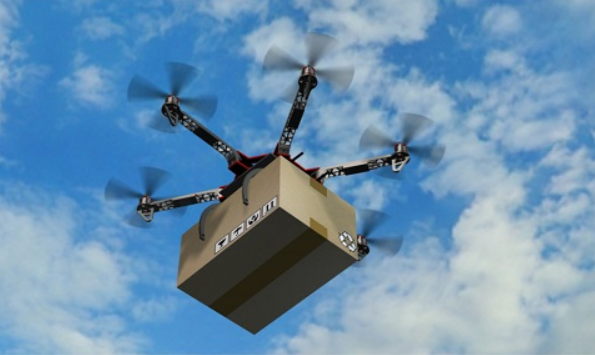Seattle Delivery Service to Replace Couriers with Drones
In an effort to save both time and money, Seattle-based delivery service GRN Holding Corporation is planning to replace traditional vehicle couriers with delivery drones provided by another local company, Squad Drone. According to available information, the first tests of these new delivery drones are expected to take place at the end of February or the beginning of March.
“We believe that if this technology proves successful, it will be adopted as a new standard by other delivery services in legalized regions across the country,” said GRN CEO Justin Costello in an official press release. He noted that drones have the potential to reduce both the cost and delivery time for cannabis, while also significantly increasing the safety of the service.
“The drone network will be managed from a single centralized control center, where certified specialists will remotely pilot the machines,” Costello explained. “Overall, we estimate that, in addition to the team of pilots, only about 20 employees will be needed to maintain the drones themselves and the computer systems that control them.”
While GRN will be the first company to use drones for cannabis delivery, drones are already being actively used for deliveries by online retailers and restaurants in various countries, including Australia and Finland.
Industry Trends and Environmental Impact
It’s worth noting that Amazon itself has shown interest in developing similar delivery technology, currently investing heavily in its own Prime Air service, which has been in formal testing in several regions of the country for several years.
Many organizations believe that drones could become a more environmentally friendly alternative to cars and other motorized delivery vehicles. However, some studies dispute this, arguing that due to battery limitations, such services may actually consume more energy resources than current logistics technologies.
Drone Capabilities and Service Rollout
According to MarketWatch, GRN already has a test fleet of six drones, each capable of carrying up to 40 kg (about 88 lbs) of cargo, with an effective operating range of 10 kilometers (about 6 miles) from the charging and loading station.
Initially, the service is expected to meet the needs of retail stores and specialized collection points, later expanding to serve individual customers as the drone network grows. Payments for the new service will be processed through the CannaTrac cashless payment system, designed for transactions within the cannabis industry.
“In terms of cost, managing and maintaining a drone will be only about one-tenth the price of servicing a van or other motorized delivery method,” said Tom Gavin, CEO of CannaTrac. “In other words, introducing these devices to the industry will not only improve safety and delivery speed. Drones will significantly lower the cost of the service for both customers and companies.”
Security Concerns
At the same time, a local radio host expressed concerns about the security of drone-based cannabis deliveries.
“I think that once teenagers find out about drones carrying kilograms of cannabis right over their homes, many will surely try to get the goods ‘for free’ by knocking down the not-so-well-protected machines with slingshots, air rifles, or something similar,” said Aaron Mason, host of KIRI Nights on a Seattle radio station. “Of course, the system developers may have come up with some basic protection methods, but I think this vulnerability is pretty obvious.”



